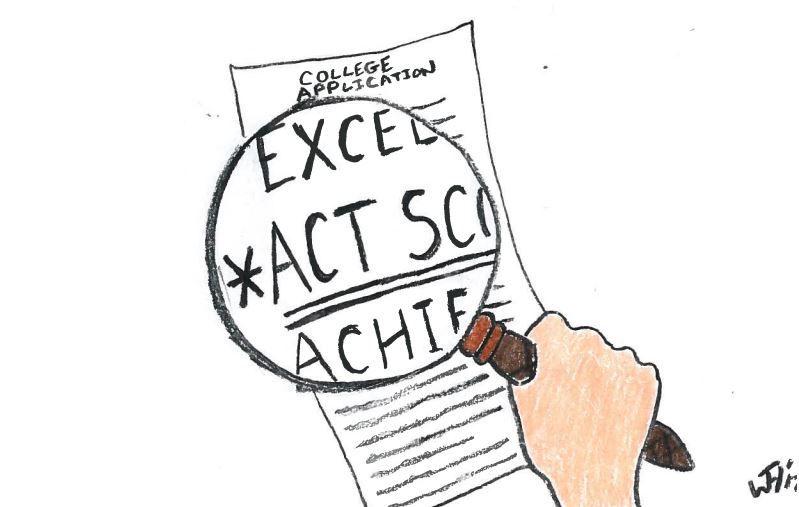Louisiana students scored an average of 19.5 on the ACT in 2017, nearly two points below the national average and three points below LSU admission requirements. Along with grade point average, standardized test scores are the foremost consideration for college admissions. ACT and SAT scores are considered an inadequate means of measuring student’s academic potential and college readiness by many. A single test score from junior or senior year of high school should not be the determining factor of nearly every facet of the next four years at university.
Diverting time and energy away from immediate priorities such as school work and extracurricular activities to prepare for standardized testing appears impractical and even impossible to many high school students. While standardized test scores carry much of the weight of college admission decisions, factors such as extracurricular activities, community involvement and leadership experience are largely ignored despite their correlation with academic success. Instead of taking a more individualized approach, most universities use standardized test scores as a catch-all to filter applications. This system is destructive to both the potential students and universities.
An exaggerated focus on standardized test scores displays the most significant negative effects on lower income students. Many high school students do not have access to preparation courses or tutors that can be both expensive and time consuming. Students who cannot afford to give hours of time or hundreds of dollars toward standardized test preparation are left at a steep disadvantage when applying to colleges. The magnified focus on standardized test scores only widens the gap for poor students while making it easier for those with the assets to succeed.
Because standardized tests are based more on application than knowledge, it is fairly simple to “hack” the test by practicing ACT-style questions without fully grasping the information. Preparing for the ACT requires more strategy than substance while focusing on methods more than material. Some teachers even devote class time “teaching to the test” rather than focusing on college preparatory curriculum, which could disadvantage students in the long term. Because there are such inequalities between the quality of preparation and material available for some students in comparison to others, the playing field is far from standardized.
Evidence has shown that a student’s grade point average, rather than standardized test score, is a more accurate predictor of future collegiate success. Unsurprisingly, a cumulative average that accounts for eight semesters of hard work is generally more reliable than a score received from three hours of furious test-taking on an early Saturday morning. Additionally, those with higher scores do not necessarily perform better academically.
A study of over 123,000 students attending universities without required ACT or SAT score submission found “virtually no correlation” in the academic performance of those who submitted standardized test scores and those who didn’t. Even high-achieving high schoolers struggle with standardized tests and receive scores that do not accurately reflect their academic aptitude.
Standardized tests like the ACT and SAT reinforce pre-existing socioeconomic inequalities while failing to accurately gauge a student’s academic potential. Alternatives to universities’ reliance on the standardized test system must be explored in order to reform a largely ineffective process.
Hannah Kleinpeter is a 20-year-old mass communication junior from Baton Rouge, Louisiana.





